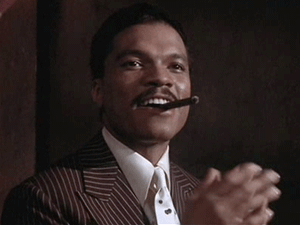StringerBell
OG
https://www.washingtonpost.com/news...-killed-michael-brown/?utm_term=.38692244233b


Robert McCulloch assured the city of Ferguson, repeatedly and occasionally in all caps, that he was “fair and impartial in every matter” concerning the criminal case of the police officer who killed Michael Brown.
But his critics had doubts.
They said the white St. Louis County, Mo., prosecutor’s family was, after all, full of police officers, including a father who died at the hands of a black suspect when McCulloch was 12.
And long before Brown was fatally shot in 2014 — igniting months of protests and fueling a nationwide discussion about whether police are more likely to use deadly force against black people — McCulloch said he agreed with a grand jury’s decision to not indict officers who killed two unarmed black men.
Elected leaders, activists, the NAACP and the county executive all said McCulloch’s choice was a simple one: Step down and let a special prosecutor lead the case. McCulloch refused.
“If there was a flash point, I’d say it was the refusal to recuse himself, because there was just this high level of outrage,” Montague Simmons told The Washington Post on Wednesday. Simmons is executive director of the Organization for Black Struggle, an organization that seeks to erase political, economic and criminal justice disparities.
“We knew then that if we wanted something different to happen, we would need someone different,” Simmons said.
On Tuesday, primary voters in St. Louis County, Mo., ousted McCulloch, who had been the top law enforcement official in the county for nearly three decades, surprising political observers who thought the veteran prosecutor would defeat a relatively inexperienced newcomer.
Wesley Bell, a black Ferguson city council member who ran on reforming the prosecutor’s office, defeated McCulloch with nearly 57 percent of the vote, a margin of more than 24,000 ballots, according to the board of elections.
No Republicans were on the ballot, all but guaranteeing that Bell will be the next prosecutor in St. Louis County, where 23 percent of residents identify as black.
The last time McCulloch was on the ballot was in November 2014, when he ran unopposed and garnered 95 percent of the votes cast.
Weeks later, he announced that a grand jury would not indict Officer Darren Wilson in Brown’s killing.
Tuesday’s primary was the first time he had faced voters since that announcement.
Many saw his attempt to hold on to his office as a referendum on what happened in Ferguson. His harshest critics accused the prosecutor of skewing the investigation in favor of Wilson, as The Post’s Mark Berman reported.
“Obviously, Ferguson defined this election,” St. Louis University political science professor Ken Warren told the St. Louis Post-Dispatch. Warren had predicted a victory for McCulloch based on his long tenure and experience running a prosecutor’s office. “Bell made his name through Ferguson, and [McCulloch] tarnished his name through his handling of Ferguson,” Warren said.
Bell, 43, an attorney who has also served as a judge and prosecutor, alluded to Ferguson’s spotlight in an Election Day posting on his campaign’s Facebook page: “The world is watching. Let’s show them what DEMOCRACY looks like.”
He could not be reached for comment Wednesday.
His campaign platform included a pledge to “fundamentally change the culture” of the prosecutor’s office, including appointing special prosecutors to review allegations of police misconduct.
During the campaign, McCulloch, 67, tried to paint Bell as inexperienced, saying the younger man had never overseen an office as large as the St. Louis county prosecutors’, which has 110 staff members and reviews nearly 12,000 investigations a year.
“I’m sure [Bell’s] a fine guy and a fine lawyer, but putting someone with zero experience in a position like this would be one of those things that is very detrimental to public safety,” McCulloch told “Politically Speaking,” a show on St. Louis Public Radio.
McCulloch told the show that he had been an assistant prosecuting attorney, tried more than 75 felony trials and spent time in private practice.
In a video posted on his campaign Facebook page Tuesday, Bell spoke of reunification: “There’s too much divisiveness, too much division in this county, in this region. We’ve got to start bringing people together.”
In an election night interview with St. Louis Public Radio, McCulloch said he was disappointed by the loss but downplayed the notion that Brown’s death was a factor in his defeat.
“I wouldn’t change a thing that I have done,” he said. “I certainly wish to thank the people of the county for all they’ve done for me, allowing me to have this job for 28 years when I’m done.”
Simmons disagreed with McCulloch’s assessment.
He remembered watching McCulloch refuse to recuse himself in 2014 and deciding that he would dedicate his efforts to getting him out of office. He filed an unsuccessful lawsuit to have McCulloch removed. When that failed, he spent years talking to voters.
Simmons said he was happy that Bell won but added that, more than anything, the victory is proof that the outrage that followed Brown’s shooting has been channeled into political change.
“The hope isn’t in Wesley himself,” Simmons said. “It’s literally in all the people that made this moment possible — the network of activists, the people that came to the table. . . . It’s a political act that we can’t ignore.”




